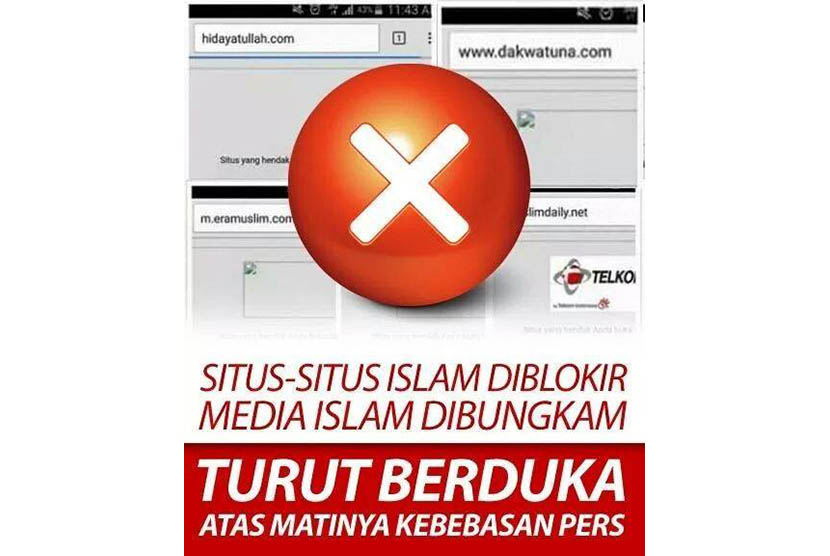REPUBLIKA.CO.ID, JAKARTA -- The Indonesian Council OF Ulama (MUI) regrets the blocking of 11 websites without explanation by the Ministry of Communications and Information Technology (Kemenkominfo). It was considered as a violation and offends among Muslims.
According to the government, the websites was considered as having radical-Islamic content. But, Vice Chairman of MUI, Zainut Tauhid Sa’adi, said that Kemenkominfo has not provided an explanation regarding to the definition of radical understanding.
He added that the blocking of the websites would call Muslims reaction, because it is a very sensitive issue for them. The policy can be a pro-and-con, although it was covered by the eradication of radical understanding and terrorism program.
“Kemenkominfo should talk about it before taking a decisive action, although they have received an input from the National Agency for Combating Terrorism (BNPT)," said Zainut in an official statement on Monday.
MUI argued blocking websites is a step backwards in the development of democracy in Indonesia. The action should be taken based on a legal process; because Indonesia is a country based on law, not on sheer power.
This is, said him, clearly a violation of human rights which guarantee the freedom of speech and of showing expression protected by the Constitution. Even the Law of Information and Electronic Transactions (UU ITE) does not mention an article which authorizes the Kemenkominfo to block a web page.
According to him, the blocking was offensive for Muslims. Not all websites bring radical understanding of Islam which leads to terrorism. "Why do the page of other religion which also has radical, provocative, and anti-Indonesian content not blocked? Is it only Muslims who brought radical understanding?" Zainut said.
He said, when talk about belief, creed, or dogma, all religions would teach right or wrong. But, it does not mean that all the content of the religion were radical. There should be a clear explanation and limitations on the definition of radical understanding.
Therefore, MUI asked for the Kemenkominfo to evaluate its policies. MUI also expected that Kemenkominfo would open spaces for dialogue before blocking any web page. By doing it, the action have a clear basic arguments and legally defensible.
Previously, the government blocked eleven Islamic sites which were indicated to spread slander and racial information. The basis refers to the new ITE Law, No. 19 of 2016 on the amendment of Law No. 11 of 2008.
A total of 11 sites were blocked by Kemenkominfo, among them, voa-islam.com, nahimunkar.com, kiblat.net, bisyarah.com, dakwahtangerang.com, islampos.com, suaranews.com, izzamedia.com, gensyiah.com, muqawamah.com, and abuzubair.net.


